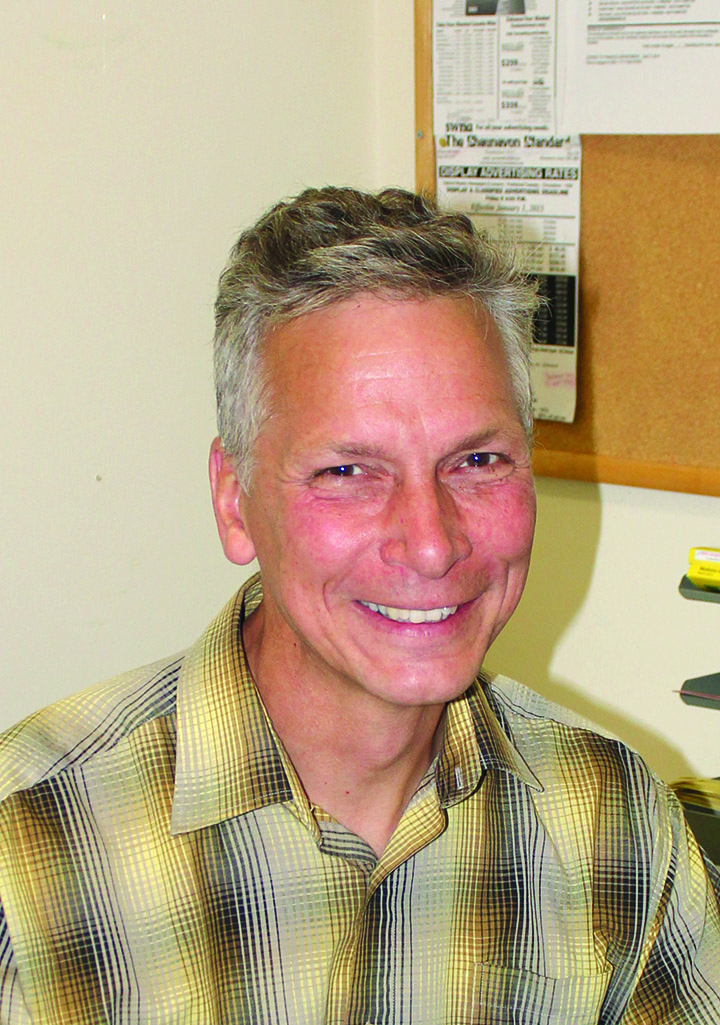A quick look inside
Posted on March 20, 2018 by Maple Creek
Wayne’s World
By Wayne Litke
“What am I doing?” I asked myself as this column began. I wasn’t sure, yet I decided to go with it and discuss matters of the heart. I hope understanding and discretion abounds as readers go beyond this point.
I want to stress there is a big job ahead of us if we are to truly make headway on social, racial and justice issues on which reform is being sought and promised by provincial and federal leaders.
I stated last week that in order to make progress in these areas “we have to address all the issues and that will take some serious soul searching” by everyone. Looking at myself, my attitudes and the factors that played into my current belief system was truly a reflective process that took me all the way back to my early childhood.
I lived close to a small town, but had a rather rustic lifestyle and enjoyed it very much. In fact, I loved it so much I did not want to go to school and consequently had a few rough years when I should have been learning basic education. In the small town where I attended school, there was not a great relationship between the Indigenous community and non-Indigenous white people, but I never realized that until I was in high school. You could call it youthful bliss, but those early years in school were anything but blissful for me.
In fact, my first altercation occurred in Grade 2 while traveling home from school on a bus. It involved a Native boy who was a grade above me, but the colour of our skin had absolutely nothing to do with the incident. Stanley, who I did not know well at the time, was sitting behind me and began poking me. The reason for his actions remain a mystery to this day. He may have been bored or simply passing on the same treatment he received from white students in his class. In any case, I warned him to stop a couple of times. He continued and then blows were exchanged. We were both terrified we would be kicked off the bus. Being booted off the bus was not only humiliating, it was a long walk home on a gravel road and it would have undoubtedly resulted in a spanking measuring 8.9 on the Richter scale for myself, and likely for Stanley as well.
We were given the evil eye by the bus driver as he watched us in his rearview mirror, but were allowed to stay on the bus. I feared one of Stanley’s older sisters was going to punch me out the next day, but something positive occurred. Stanley and I became friends after our spat and any hard feelings were forgotten. I totally lost touch with Stanley after I moved away from my hometown and have many times wondered where he is and what he thinks about the world we now live in.
Why share such a trivial childhood memory? I truly don’t know, but I feel it shows that people can get along if there is a willingness to forgive and move forward. Unfortunately, there are individuals who want to ensure the pain of past wrongs are never forgotten, and that is a totally unhealthy approach to life in my opinion. There were a couple of periods of great pain in my youth and I was very close to becoming a bitter and vindictive individual. However, it somehow became apparent my bitterness and hatred would eventually lead to my destruction. I had seen its effects on several relatives and must have been able to put two and two together despite my rocky start in mathematics.
Holding grudges and bringing up bitterness from the past will ensure future generations continue to feel the same resentment, anger and other destructive emotions. Playing on those emotions may be advantageous for leaders and politicians seeking to advance agendas, but it is counterproductive when it comes to reconciliation and healing hearts.
Kim Jonathan, the vice-chief of Federation of Sovereign Indigenous Nations (FSIN), was the focus of a March 9 story in the Leader-Post dealing with the subject of equal treatment of Indigenous youth in the justice system. She said such equality “will happen through education and understanding truths that are sometimes hard to listen to.”
“Those conversations are going to be difficult, scary and very uncomfortable,” but they “need to happen.”
Jonathan is absolutely correct, and I hope those conversations occur on two fronts: privately when we examine our attitudes toward others and collectively as a society of mixed races and cultures. If two little boys on a bus can overcome their differences, surely adults of all skin colours can be honest with themselves and others, deal with uncomfortable subjects and build a brighter tomorrow.
Murray Mandryk identified a big problem in his column when he stated, “There are just too many conversations in which too many choose not to listen.”
“Right now, both sides are all too eager to ignore those in a position of authority, simply because what they have to say doesn’t fit their narrative. This is no healthier than ignoring the justice and policing problems altogether.”
From my own personal experience, healing the heart and overcoming my problems was not possible until I allowed it to happen. It did not involve a financial settlement, and if I had left it up to others, there never would have been any reconciliation. I hope and pray all Canadians can take a look at themselves inside and out, be honest and allow real reconciliation to occur.


Leave a Reply
You must be logged in to post a comment.